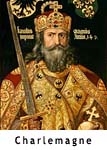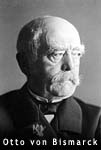Germany has a population of 81,305,856 and gained its independence in 1618.
In the first century BC, powerful Roman legions moved north across Europe conquering everything in their path, but here they met very stiff resistance from Germanic tribes. In the end, Roman forces could only occupy lands up to the Danube River in the south and the Rhine in the west, as central Germany remained free. When the Roman Empire all but collapsed, groups of regional Germanic peoples (including free Germany) merged to become a consequential European force, one ruled (768-814) by Charlemagne, King of the Franks.
When the Roman Empire all but collapsed, groups of regional Germanic peoples (including free Germany) merged to become a consequential European force, one ruled (768-814) by Charlemagne, King of the Franks. After Charlemagne's death, the land was sub-divided and loosely controlled by the Holy Roman Empire (the Pope in Rome). Otto the Great (appointed by Rome) and the emperors that followed claimed that they were the true successors to the ancient Roman Empire and therefore called their domain the Holy Roman Empire.
In the late Middle Ages the Hanseatic League, a large group of (free cities) formed and became an economic power in the port cities of northern Germany. Bremen, Hamburg and Lubeck became major centers of commerce, Heidelberg University was founded and Johannes Gutenberg printed the first bible.
For almost two centuries Germany was fractured into an almost unmanageable collection of cities and states, presided over (or ruled) by bishops and archbishops (controlled by Rome), and assorted kings, princes, dukes, imperial knights and other military nobility.
In 1517, the Martin Luther inspired Protestant Reformation began, thrusting Europe into decades of religious and political turmoil. The disastrous Thirty Years' War (1618-1648) devastated the cities and finances of Germany, and much of its land was lost.
The remaining German states were now politically weak, but in the northeast, Prussia and the state of Brandenburg, under the brilliant and inspired rule of Frederick II were transformed into a European cultural center, an influential state and a powerful political force, headquartered inBerlin.
Beginning in 1793, the southern and western states were no match for Napoleon far-reaching armies, however, Prussia offered strong resistance and when the Napoleonic Wars ended, a confederation of autonomous German states and towns formed.
 Otto von Bismarck, the so-called "Iron Chancellor," molded those states into a great united empire; Berlin was the capital; the economy flourished; the influence of the church faded; Wilhelm I, was installed as Kaiser; overseas colonies were acquired in both Africa and Asia and World War I was on the horizon.
Otto von Bismarck, the so-called "Iron Chancellor," molded those states into a great united empire; Berlin was the capital; the economy flourished; the influence of the church faded; Wilhelm I, was installed as Kaiser; overseas colonies were acquired in both Africa and Asia and World War I was on the horizon. Germany attacked, and millions would die in the horrors of that war, especially in France and Belgium. In 1919 the Treaty of Versailles was signed and severe war reparations were imposed on Germany, including loss of territories and the Kaiser's departure. "Auf Wiedersehen."
For Adolf Hitler, the economic hardship imposed by the war, high inflation and worker unrest were the needed ingredients for change, and he was elected President in 1932. Hitler took complete control of the government and pursued an aggressive policy that eventually sparked the tragic events of World War II.
The German armies raced across Europe, almost unopposed, with Britain mustering the only real opposition. With a systematic (insane) attempt to exterminate Europe's Jewish population in full swing, German forces marched against Russia in the dead of winter. They soon stalled along that front for lack of food and fuel, and the brutal sub-zero conditions.
At about that time the Allies landed on the beaches ofNormandy, and World War II's European nightmare eventually ended. Tens of millions were dead, Hitler committed suicide in Berlin, and Germany surrendered unconditionally to the Allies in 1945.
Germany was in total rubble, the Allies (Britain, Franceand the US) transformed the western region of Germany into the Federal Republic of Germany. Flooded by large amounts of US capital, rebuilding and recovery began. In the east the (Soviet Zone) became the Communist German Democratic Republic, or GDR.
 Even worse, the Communists built a wall through the center of Berlin that separated the two; in the west Germany sprang back to life and grew into an affluent democracy, but in the east (thanks to Communism) the GDR withered on the vine and all but died.
Even worse, the Communists built a wall through the center of Berlin that separated the two; in the west Germany sprang back to life and grew into an affluent democracy, but in the east (thanks to Communism) the GDR withered on the vine and all but died. Communism finally collapsed in eastern Europe with the decline of the USSR (communist Russia). That wall (the Berlin Wall) was breached and down it came, and the incorporation (or reunification) of East Germany into West Germany was the inevitable result.
Since then, united Germany has expended considerable funds to bring Eastern productivity and wages up to Western standards. In January 1999, Germany and 10 other EU countries introduced a common Europeanexchange currency, the Euro.
Recently, Germany has taken a more active role in the European Union and NATO. Germany sent a forces to secure stability in the Balkans and sent a force of German troops to Afghanistan to provide security in that country. All military deployments are controversial since, after the war, Germany was bound by law only to deploy troops for defence roles.
In 2005, history was made in German politics when Angela Merkel was elected the first female Chancellor of Germany. Following her election, Merkel created the current coalition government replacing the Social Democratic Party with the Free Democratic Party (FDP).
As Europe's largest economy and second most populous nation, Germany remains a key player in the continent's economic and defense organizations, as well as being one its most popular tourist destinations.
No comments:
Post a Comment